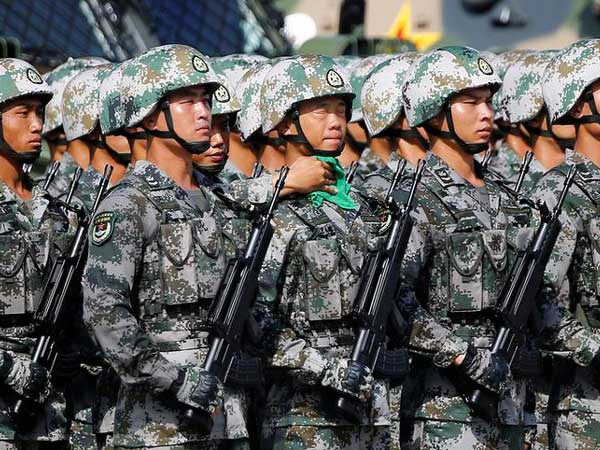The law, which will take effect on January 1 next year, specifies that “the sovereignty and territorial integrity of the People’s Republic of China are sacred and inviolable”.
China’s legislative body has adopted a new law on the protection and exploitation of the country’s land border areas, impacting Beijing’s border dispute with India. The new law asserts that sovereignty and territorial integrity are “sacred and inviolable”.
On Saturday, the Standing Committee of the National People’s Congress (NPC) approved the law at the end of a legislative session, state-run Xinhua reported.
The law, which takes effect on January 1 next year, specifies that “the sovereignty and territorial integrity of the People’s Republic of China are sacred and inviolable”.
According to the report, the state should guard against and combat any act that undermines territorial sovereignty and boundaries.
The law also stipulates that the state shall take measures to strengthen border defence, support economic and social development in the border areas, improve services and infrastructure in such places, encourage and support people to live and work there, as well as promote coordination between border defence and social and economic development, the law states.
Considering the principle of equality, mutual trust, and friendly consultation, the state should handle land border affairs with neighbouring countries through negotiations to resolve disputes and longstanding border issues, it says.
China has not finalized border agreements with India and Bhutan, whereas Beijing has settled disputes with 12 other neighbours.
Last week, Harsh Vardhan Shringla said that the developments along the Line of Actual Control (LAC) in eastern Ladakh have “seriously disturbed” the peace and tranquillity along the border, impacting the broader relationship.
In his remarks at a seminar on “Leveraging China’s Economy” on October 21, the foreign secretary referred to External Affairs Minister S Jaishankar’s statement that the ability of India and China to work together will determine the Asian century.
For this to happen, peace and tranquillity in the border areas must prevail. Jaishankar has also made it clear that developing our ties can only be achieved through mutuality — mutual respect, mutual sensitivity and mutual interests should guide these efforts,” Shringla said.
“We hope that China will work with us to resolve current issues so that our bilateral relations can progress while taking into account each other’s sensitivities, aspirations, and interests,” the foreign secretary said.
China-Bhutan border disputes cover about 400 km along the Line of Actual Control, whereas India-China border disputes cover 3,488 km along the Line of Actual Control.
A new land border law was adopted amid a standoff between eastern Ladakh’s Indian and Chinese militaries.
China and Bhutan signed an MOU on October 14, outlining a three-step roadmap for accelerating border negotiations, which Beijing said would make a “meaningful contribution” to advancing the border talks and establishing diplomatic relations with Bhutan.
According to the law:
According to the law, which has 62 articles, the state must safeguard territorial integrity and land boundaries and guard against and combat any act that undermines territorial sovereignty and land boundaries.
State law requires the state to take measures for “improving public services and infrastructure in border areas, encouraging and supporting people’s lives and work there, and promoting coordination between border defence and social, economic development in border areas”.
Specifically, the law states that the PLA, the armed militia, and local governments support and coordinate border defence, border management, and infrastructure.
“Under the leadership of the Central Military Commission, relevant military organs shall organize, direct and coordinate the defence and control of land borders, maintain social stability, deal with emergencies, and cooperate in border defence.”
According to the law, the state must nurture border towns and improve their overall “supporting capacity”.
According to some estimates, more than 600 border villages are built across China’s borders in Tibet.
According to article 43 of the law, “the state supports the construction of border towns, improves the system of border towns, and strengthens the construction of supporting infrastructure.”
Concerning the issue of resolving border disputes, the law states that “the state shall, based on the principles of equality, mutual trust, and friendly consultation, resolve disputes with neighbouring countries through negotiations.”.
According to state media, NPC member Gao Jinlu said that the land border law provides a standardized legal framework for managing China’s land border affairs.
President Xi Jinping promulgated the law.
Li Zhanshu, chairman of the 13th NPC Standing Committee, presided over the closing session of the 31st session of the 13th NPC Standing Committee.













